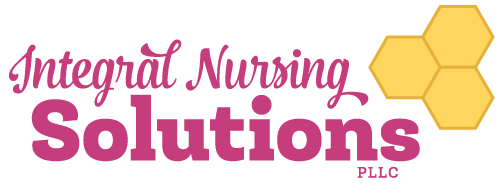Take Refuge in Your Professional Ethics
Your professional ethics support you when you lean on them with skillful speech. Professional behavior takes you on the “high road” by employing integrity. As a professional you are honest, do no harm, competent, accountable, and self-regulated. As health care budgets are cut and more work is expected of fewer nurses, speaking up for justice and ethical behavior is not always easy. 3.6 million nurses strong, the profession has resources to keep you on track to have a strong ethical voice when it comes to health care issues.
Comparing current events to the rise of Nazism and Fascism in the 1930’s, Yale Professor Timothy Snyder reminds us in On Tyranny: 20 Lessons from the 20th Century, “when political leaders set a negative example, professional commitments to just practice become more important…. If members of professions think of themselves as groups with common interest, with norms and rules that oblige them at all times, then they can gain confidence and indeed a certain kind of power.” (p. 40) In 2015 the ANA took an unequivocal stand on the issue of incivility and bullying in the work place. Nurses are required to “create an ethical environment and culture of civility and kindness, treating colleagues, co-workers, employees, students, and others with dignity and respect.” Similarly, nurses must be afforded the same level of respect and dignity as others (ANA, 2015a). The ANA has also taken a thoughtful and strong stand on health care reform.
Although there are no federal standards that require workplace violence protections, several states have enacted legislation or regulations aimed at preventing workplace violence. What does your state have in place? You need strength and clarity to stand up for yourself and others when in a toxic situation of incivility or bullying. The 4 Gates of Speech will guide and support your ethical behavior when you are told the situation is exceptional, or you are asked to do something that is immoral and puts your license at risk.
4 Examples:
- I was a hospice nurse in a rural area. The company was having many different economic and staffing difficulties. My census was increased to way beyond what was safe or reasonable.
With some trepidation, I explained to my supervisor that I could not take the next admission because it was not safe for me or for the patient. The admission was given to another team. Safe RN ratios have been proven to improve the quality of care and nurse recruitment and retention in California hospitals which is the only state that has mandated nurse/patient ratios. My experience of speaking up to my supervisor was very empowering. It also was a good example to my peers.
2. An APRN colleague recently relayed the following experience: After her report in the monthly meeting, the supervisor criticized her in front of the team such that she felt “shamed, embarrassed, humiliated and undermined”. The APRN later went to the supervisor. She explained to her that if she had a criticism, she should tell her privately. The supervisor has not humiliated the APRN since, but continues her uncivil and bullying behavior with others.
Our beautiful profession of nursing is about reducing suffering and building on strengths towards increased well being for nurses as well as those in our care. Using the 4 Gates of Speech you can confront difficult situations with clarity and confidence.
Is it true? Is it necessary? Is it kind? Is it the right time and place?
Using these gates let’s unpack the APRN’s situation. We don’t know if the criticism was true or was necessary. However, the supervisor clearly chose the wrong time and place and was not kind. The APRN spoke her truth to establish her professional boundaries and consequently was teaching the supervisor how to behave professionally. She did not share her feelings of being undermined, shamed and embarrassed. (Under other circumstances sharing feelings might be useful.) The APRN found a place that allowed for privacy but we don’t know if the time was mutually satisfactory. The APRN spoke in a way that was professional, which is, kind and beneficial. Her speech and action set an example to prevent future occurrences of incivility to herself and others.
3. In the 1980’s I worked in a small city hospital that began to change its identity from a neighborhood hospital to a corporate model. Nurses’ benefits were cut and nursing positions were eliminated in addition to other cost cutting efforts at the expense of patient care.
It was the nurses’ professional behaviors- how we spoke to each other, what we said, where we said it, and the actions that followed that convinced reluctant nurses to reconsider their positions. Taking the “exceptional” stance: “just for now and the situation will change”, the cuts continued. The nurses discovered that advocating for their patients, they were also speaking on their own behalf. Eventually a nurses union was voted in and the nurses had a voice at the bargaining table and negotiated improvements on behalf of themselves and their patients. At the end the nurses remarked what an empowering learning experience it was for all.
4. More recently remember the arrest of University of Utah Hospital nurse Alex Wubbels on July 26, 2017. She was defending her patient’s right to not have his blood drawn without consent. It would have been an ethical breach to not have done so. Having to speak up to law enforcement officials, which can be difficult given their positions of authority and power, her actions have given everyone an excellent and extreme example of advocacy.
The bottom line is that if your license is at risk, you are facing an ethical dilemma.

When you see something that is not professional or right, do you deny it, turn away or stand up? What gives you that strength and courage to stand up for yourself and others? As you reflect on your career, please share with us your experiences of professional risk and how you handled it.
In the VITALITY IN PROGRESS: HEALING AND PREVENTING BURNOUT FOR NURSES
90 day program, participants strengthen their advocacy skills with 3 Self-care habits,
sharing in an accountability community and with individualized mentoring.
With successful completion, the nurse also receives 39 credits!




 Is it true?
Is it true? Healthy self talk is empowering and kind.
Healthy self talk is empowering and kind.